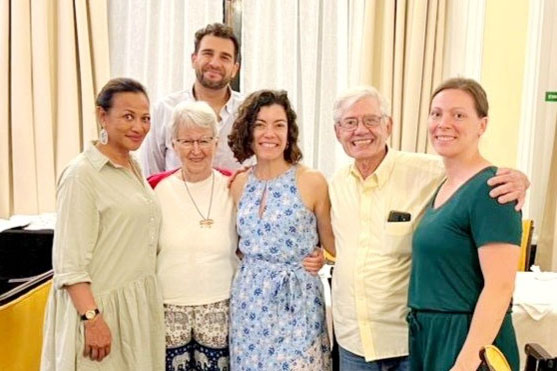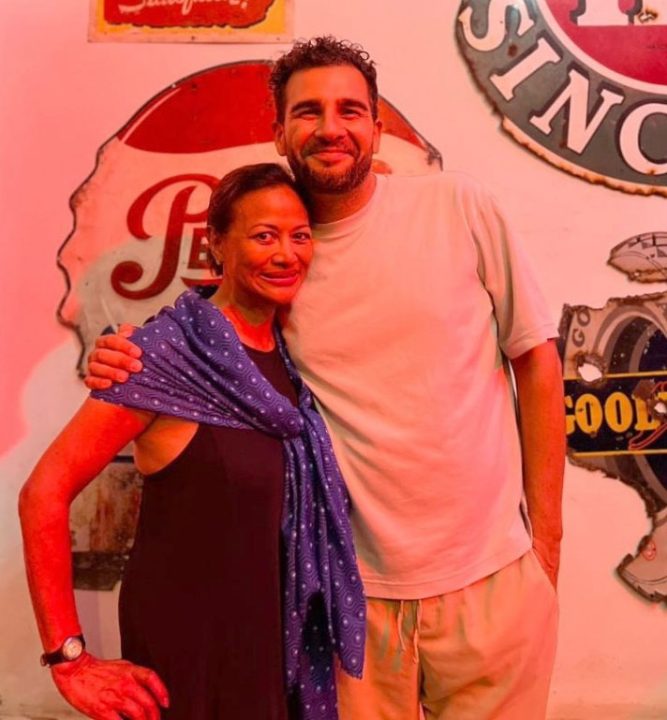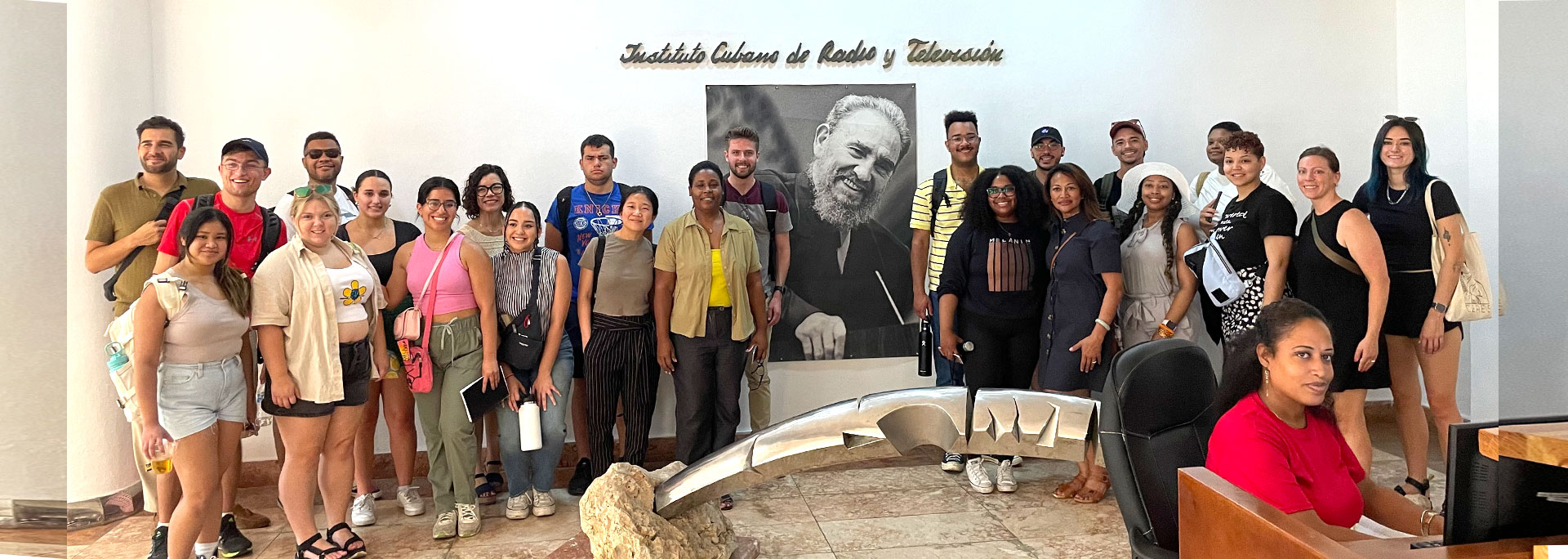Shailah Magallon had always wanted to study abroad, but she never viewed Cuba as an option due to the restrictions for traveling to the country.
However, when Magallon learned that the Cronkite School was hosting a study abroad trip to Cuba, she didn’t hesitate to pursue the rare opportunity.
“I just really wanted a new experience, and I really wanted to study abroad,” Magallon said. “Cuba was never on my list. It was one of those countries that I never thought that I would ever get to visit.”
Magallon was one of 19 students who participated in the May trip, which was made possible thanks to a generous gift from Dr. Adelaida V. and Barry S. Severson, longtime supporters of global initiatives at the Cronkite School. Adelaida, a Cronkite alumna and Alumni Hall of Fame inductee, and Barry are co-founders of Bushtex, Inc., a global satellite communications company.
In 2022, the Seversons established the Severson Cronkite Global Media Experience Fund to provide scholarly and academic global learning opportunities for Cronkite students. The Cuba trip, which was hosted by Cronkite Global Initiatives in partnership with Arizona State University’s Global Education Office and the Institute for Study Abroad, was the first international learning experience of its kind at the Cronkite School.
“We are very grateful for the support of the Seversons. This study abroad opportunity would not have occurred without their generosity,” said Dr. Battinto L. Batts Jr., dean of the Cronkite School. “The Seversons recognize the importance of global exploration of cultures to the educational experience, especially in the field of media.”
The purpose of the trip was to explore the media landscape in the country, its relationship with the government and the effect on society and Cuban citizens. The students participated in discussions and lectures with journalism students and professors from the University of Havana, who described the role of journalism and communication in Cuban society, as well as the challenges that Cuban journalists face. They also toured a state-run radio station, the national library and a CNN bureau within the country.
In addition, the students stayed with host families and met with citizens while taking part in various cultural activities and visiting landmarks.
Cronkite Global Initiatives Executive Director and Associate Professor Juan Mundel and Cronkite professor Fernanda Santos taught the course and traveled with the students. Dr. Severson and Julia Pitman from ASU’s Global Education office also joined the cohort in Havana.

“This inaugural and unique Cuban media trip was a long time coming — a process we started in 2013. We chose Cuba because it is so different, and it isn’t your typical study abroad destination. It is these kinds of life-changing experiences that we want to provide and invest in for our future journalists,” Dr. Severson said. “We believe they need to see the world through different lenses and cultivate their own thoughtful perspectives to tell their stories. We are so thankful for the innovative and global minded leadership at ASU and the Cronkite School to make this a reality!”

The trip allowed the students to dispel myths about the country while learning some of the stark differences between the media in Cuba and the U.S.
“Cuba, in my opinion, turned out to be the perfect place to explore something that is hugely important these days, which is our understanding of how media and messages shape how we interact with the world around us,” Mundel said.
The students saw firsthand how the government influences press freedom in the country, as well as how younger Cuban journalists and students are pushing back against certain narratives.
“The biggest thing was probably how important freedom of speech is in America, the laws protecting journalists and how important that is,” said Magallon, an online student who lives in Chicago and is pursuing a mass communication and media studies degree. “We have access to a lot of news, whether it be on TikTok, Instagram or Facebook, some of those sites aren’t even available in Cuba because Internet access is so scarce.”
Although social media access is limited in the country, the availability of those platforms has grown in recent years, helping to expand how Cubans discuss the government, economy and other issues.
“Social media being introduced in the last couple years has changed things a lot and I think has progressed things, moving the dial forward in terms of public discourse about the way that people live,” said Evan Lis, who graduated this past spring with a dual bachelor’s degree in journalism and mass communication and geology. “But I think that journalism in general, from my perspective, just followed the way that the government regime was set up.”
Despite the differences in freedom of speech, the Cuban journalism students said they want more control of the narrative surrounding their country instead of letting non-Cuban media organizations shape those perceptions.
For Cronkite sophomore Sam McGee, it’s a lesson that can also apply to American media.
“They wanted Cubans to handle Cuban news,” McGee said. “It made me come away with the idea that we should be looking into the communities that we want to report on for the reporters already there. They are going to have a better understanding of their own communities than our own outside perspective.”
